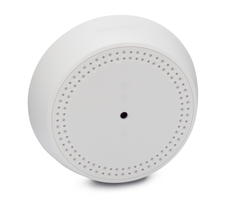What Can Set Off Wireless Glass Break Detectors?
Any sound that is similar to the shattering of glass can set off wireless glass break detectors. This could be caused by a window or glass casing being broken. But false sounds can also sometimes activate a sensor. Some glass breaks must also hear the "thud" of an object striking the glass.
 |
 |
 |
The main purpose of a glass break sensor is to listen for the sound of breaking glass. Upon detecting this type of sound, the sensor will send a wireless signal to the security panel to let it know of the situation. The alarm system will then respond based on the programming settings for that zone. The response will usually involve sending an alert to a central station and/or the end user through text and/or email. However, the system can only alert a central monitoring station if this capability is included in the user's alarm monitoring plan. Make sure that your monitoring plan includes this feature if you want to receive automatic emergency dispatch from the local authorities.
The sound of shattering glass is a relatively high-pitched frequency with a somewhat unique sound signature. A glass break sensor has a built-in microphone, and it actively listens for this type of sound. This sound is usually unique enough that false alarms should rarely occur. However, it is possible that other higher-pitched sounds may be able to set off a glass break sensors. For example, a person dropping a box full of metal objects (e.g. coins, eating utensils, etc.) could produce a sound similar to that of breaking glass. If this sound occurred within the listening range of the glass break sensor, it is very likely that it would activate. There have even been cases where a glass break sensor has activated because of someone clapping their hands.
Many glass break sensors have taken additional counter-measures to prevent false alarms caused by similar sounds. For example, many glass break detectors now require the built-in microphone to hear both the high-pitched "shattering" of the breaking glass and the low-pitched "thud" of an object striking against the glass. This will make it less likely for a similar sound to cause a false alarm. Some glass break sensors can be adjusted for sensitivity, and a low sensitivity setting will prevent false alarms. And of course, a user can always request to have a central station call them before sending out emergency dispatch to their home or business.
Did you find this answer useful?
We offer alarm monitoring as low as $10 / month
Click Here to Learn MoreRelated Categories
- Answered
